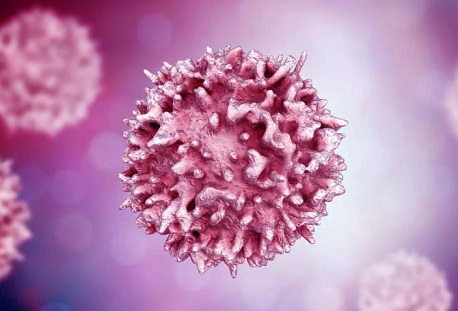Nikhil Prasad Fact checked by:Thailand Medical News Team Aug 27, 2024 1 year, 3 months, 3 weeks, 6 days, 17 hours, 2 minutes ago
Medical News: A Persistent Aftermath of COVID-19
Researchers from multiple institutions across Madrid, Spain, including the National Center of Microbiology at Instituto de Salud Carlos III, Universidad Nacional de Educación a Distancia (UNED), and Hospital Universitario Ramón y Cajal, have conducted a comprehensive study examining the immune response in individuals suffering from Post-COVID Condition (PCC), commonly known as Long COVID. This
Medical News report delves into their findings, which shed light on the altered functionality of CD4+ T helper (Th) cells in those experiencing prolonged symptoms after a mild COVID-19 infection.
 Long COVID linked to the altered functionality of CD4+ T helper (Th) cells
Understanding the Scope of Post-COVID Condition
Long COVID linked to the altered functionality of CD4+ T helper (Th) cells
Understanding the Scope of Post-COVID Condition
Post-COVID Condition (PCC) manifests in a variety of persistent symptoms that can last for months or even years after the initial infection. While some individuals recover fully from mild COVID-19 within weeks, others experience a wide range of ongoing symptoms such as fatigue, memory loss, and respiratory issues, collectively known as PCC. The study explores how the immune system’s response, particularly the behavior of CD4+ T helper cells, differs in individuals with PCC compared to those who recover without lingering effects.
Study Overview and Methodology
The study involved 79 participants from Madrid, categorized into four groups: those who had mild, severe, and critical COVID-19, and those diagnosed with PCC. Researchers focused on analyzing the distribution and functionality of various CD4+ T helper (Th) cell subsets - Th1, Th2, Th9, Th17, and Th22 - across these groups. Blood samples were collected and analyzed to measure the levels of these cells and their capacity to produce specific cytokines, which are crucial signaling proteins in the immune system.
Key Findings:
-Th1 Cells and Persistent Inflammation
One of the most striking findings was the low levels of Th1 cells in individuals with PCC, a pattern similar to those with severe and critical COVID-19. Th1 cells are crucial for a robust antiviral response, and their reduced numbers in PCC patients suggest a compromised ability to fight off viral infections. Interestingly, despite their low numbers, Th1 cells in PCC patients exhibited a heightened ability to produce interferon-gamma (IFN-γ), a cytokine that plays a key role in immune responses. This overproduction of IFN-γ indicates a persistent state of inflammation, potentially contributing to the chronic symptoms seen in PCC.
-Th2 Cells: A Shift Toward a Pro-Inflammatory State
The study also revealed a significant alteration in the behavior of Th2 cells in PCC patients. Th2 cells, typically involved in combating extracellular pathogens and promoting antibody production, were found at lower levels in PCC patients compared to those with severe and critical COVID-19. However, these cells demonstrated a much higher capacity to produce IL-4
and IL-13, cytokines associated with allergic responses and inflammation. This suggests that PCC might be characterized by an immune response that, while less effective at clearing viral infections, is more prone to promoting inflammation and related symptoms.
-The Role of Th9 and Th17 Cells in PCC
The researchers observed elevated levels of Th9 and Th17 cells in PCC patients compared to those with acute COVID-19. Th9 cells are known for their role in allergic reactions and inflammation, while Th17 cells are typically involved in protecting against extracellular pathogens in mucosal surfaces like the lungs and intestines. However, in PCC patients, a significant proportion of Th17 cells were unable to produce their usual cytokines, IL-17A and IL-22, which are critical for pathogen clearance and tissue repair. This dysfunction could contribute to the persistence of symptoms and the inability to fully recover from the initial infection.
-Th22 Cells and the Impaired Repair Mechanisms
Th22 cells, which are involved in skin health and mucosal immunity, also showed altered behavior in PCC patients. The study found that Th22 cells in these individuals had a reduced capacity to produce IL-13 and IL-22, cytokines essential for tissue repair and regeneration. This deficiency could explain why some PCC patients experience prolonged recovery periods and remain vulnerable to reinfections or other complications.
Conclusion: Implications for Treatment and Future Research
The findings from this study underscore the complex nature of PCC and its ties to an altered immune response. The persistent inflammation and dysfunctional immune cells observed in PCC patients highlight the need for targeted treatments that can restore balance to the immune system. This could involve therapies aimed at modulating Th cell responses or reducing the pro-inflammatory state seen in these individuals.
The study findings were published in the peer-reviewed journal Frontiers in Immunology.
https://www.frontiersin.org/journals/immunology/articles/10.3389/fimmu.2024.1431411/full
For the latest COVID-19 News, keep on logging to Thailand
Medical News.
Read Also
https://www.thailandmedical.news/news/why-your-immune-system-doesn-t-remember-covid-19-well-new-findings-on-cd4-t-cells
https://www.thailandmedical.news/news/doctors-warn-covid-19-mrna-jabs-can-cause-primary-cutaneous-cd4-small-medium-t-cell-lymphoproliferative-disorders-and-cutaneous-lymphomas
https://www.thailandmedical.news/news/breaking-covid-19-news-french-study-finds-that-sars-cov-2-induced-cd4-cell-death-is-possibly-responsible-for-long-covid
